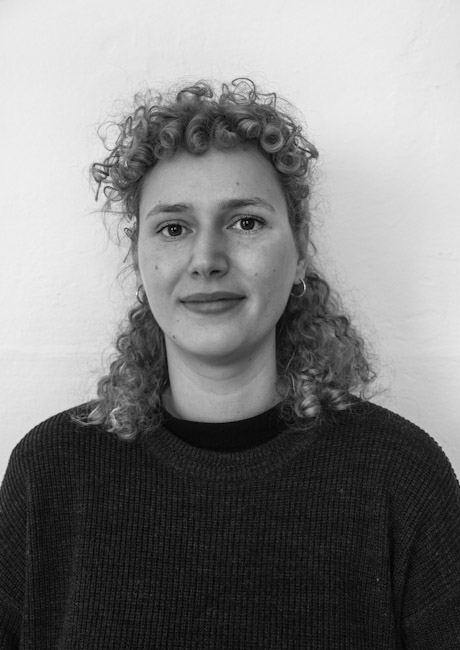
KU Eichstätt-Ingolstadt
Am Marktplatz 2
85072 Eichstätt
Leonie.Unkel@ku.de
Leonie Unkel is a PhD candidate with the DFG-funded research group “Practicing Place: Socio-Cultural Practices and Epistemic Configurations” at the Katholische Universität Eichstätt-Ingolstadt. Before starting her PhD, Leonie completed two bachelor’s degrees in German Language, Literatures and Cultures and English and American Studies at the University of Bamberg. Afterwards she further pursued her studies in English and American Studies in the European Joint Master’s Programme at the University of Bamberg. As part of her master’s programme Leonie spent one term abroad at the Jagiellonian University in Krakow, Poland. During her master’s, Leonie attended the Graz International Summer School Seggau with the overall theme “Re-Measuring, Re-Calculating, Re-Counting: State – Society – Religion in Transition”, where her first article, “‘The Sun always has a way to reach us’: Exploring Innocence and Experience in Kazuo Ishiguro’s Klara and the Sun” was published in Off Campus: Seggau School of Thought Volume IX. In 2023, she successfully completed her master’s degree with a thesis titled: Towards a Narratology of Age(ing): A Study of Time and Space in Selected Novels by Kazuo Ishiguro. At its centre, her thesis argued that narrative time and narrative space are not universal narrative categories but are dependent on age(ing) in their realisation. Her thesis allowed her to combine her main research interests in postclassical narratologies and age studies and forge a band between the two disciplines. As part of the Joint Programme, Leonie holds a Master’s degree from the University of Bamberg and the Jagiellonian University in Krakow. In her dissertation, Leonie hopes to further develop the link between postclassical narratology and age studies by focusing on narrative space in connection with gender as a second identity marker in Kazuo Ishiguro’s works. Her aim is to show how narrative space can illustrate ageing processes and how narrative space demonstrates how practices of space and place change during a life.
Narrating Age(ing) through Space: Age(ing), Gender and Space in Kazuo Ishiguro
As part of the so-called postclassical narratologies, contextualist or thematical narratologies allow for the inclusion of gender, sexual identity, and ethnicity in the study of narratives, thereby successfully undermining ‘classical’ narratology’s claim to universality. While many contextualist approaches like feminist, queer and postcolonial narratology have already been firmly established, it is striking that there is, as of yet, still no approach that considers age(ing). Age studies are inherently intersectional and have already forged productive bands with, for instance, gender studies. By including these insights in my study, my aim is to connect narratology to age studies with space and place at its centre. While both fields of study are inherently connected to time, space, the other Kantian category that structures human experience, has only been properly considered since the so-called spatial turn in the 1980s. In my dissertation, I aim to foreground space and place and pick up the threads of narratology, age studies, and gender studies and productively weave them together in order to bring new insights to both narratology and age studies. In order to provide a more specified and focused analysis, I will introduce the category gender as a second identity marker alongside age to present their intersection in gendered, as well as aged spaces in narratives. I will use an array of theories on narrative space, including ‘strictly’ narratological perspectives like, for example, Franz Stanzel’s a/perspectivism, metaphorical approaches like the container or space-as-network metaphors, Marie-Laure Ryan’s conception of storyworlds and narrative world building, and theories of space as standalone entity that have been brought about by the spatial turn, such as Foucault’s heterotopias. Reading Kazuo Ishiguro’s A Pale View of Hills, An Artist of the Floating World, The Remains of the Day, Never Let Me Go, Nocturnes, The Buried Giant and Klara and the Sun through the lens of age studies coupled with theories from gender studies will highlight the centrality of age(ing) to Ishiguro’s works, and I will make a narratological contribution to Ishiguro studies. Employing seminal findings of age studies like Margaret Morganroth Gullette’s notion of western society being aged by culture, Gullette’s theories on the decline narrative, and Roberta Maierhofer’s division between chronological age and the cultural stereotypes associated with growing older, I aim to show that narrative space is dependent on age(ing) in its realisation in narrative texts and, simultaneously, will sketch how age(ing) is represented in narratives through narrative space. I wish to study whether Ishiguro’s works follow the prominent decline narratives of age(ing) in western society and see if the characters’ spaces shrink in a physical sense while other spaces open up in their memories. Space and place will take on different emotional meanings during the lives of the characters. This is further underpinned by their respective genders which will, in turn, offer another possibility of differentiation. By foregrounding place and space through the lens of (gendered) age(ing), I will contribute to narratology as well as age studies and link both fields in a new and innovative way, productively expanding on previous contributions to both fields.